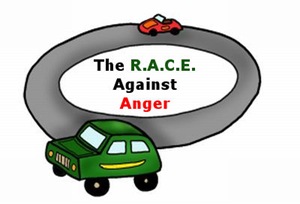What is Grief?


Experts have identified five distinct stages in grief. You may not experience these stages sequentially (meaning one after the other), but you are likely to experience all five stages in dealing with the loss in your life. You may also experiences these different stages numerous times as you continue to get older and understand more and more about life and the loss you have experienced as the result of your parents’ divorce.
Elizabeth Kubler Ross identified five stages of grief that people experience following the death of someone close. These five stages will also apply to processing the losses you have experienced as a result of the divorce. They include:
1. Denial
During this stage you may deny that anything has changed about your family. You don’t talk about it. You try not to think about it. You convince yourself that everything will get back to normal soon. Rather than deal with the emotions and feelings you are experiencing, you push them deep down inside and pretend nothing is going on. You might be wondering why all this is happening to you in the first place. In order to move into the other stages of grief, you must first be willing to admit that you have lost something.
2. Anger
Anger is a very common reaction to divorce. In this stage, you may be angry with your parents, or one parent, for destroying your family. You might even be angry with yourself (sometimes called guilt). Sometimes your anger can come out in unproductive ways that may bring negative consequences. Other times, you may try to bury your anger deep down inside which can result in physical and other emotional problems. Sometimes you may lash out at people that you care about for no apparent reason. It is important to let someone know about the anger you are feeling so that you can move past this stage and continue through the grieving process.
3. Bargaining
In this stage, you begin to make “deals” to try to keep the divorce from happening – or at least to put it off for a little while. You might try to make deals with your parents. “I promise to get good grades in school if you and mom will just try to work things out.” Or, “I promise to do all of my chores without complaining if you’ll just move back in.” You may even try to bargain with God. “God, if you will get my parents back together, I promise to read my Bible and go to church every single week.” These “bargains” might not be rational, but you will still try to make them.
4. Depression
When your bargains don’t work out, you’re likely going to move into this next stage of grief. When you reach the depression stage you’ve accepted that the divorce is going to happen, or is final, and there isn’t anything you can do about it. Depression comes with a deep sense of sadness. You may cry and find little enjoyment in things that you used to love. You begin to realize that things will never be the same as they once were. Although this is not a pleasant stage in the grieving process (none of them really are), it is important that you work your way through it and not just try to “happy yourself up” or ignore it.
5. Acceptance
Acceptance is the final stage in the grief process. This stage does not mean that you are happy about the divorce. Instead, it simply means that you have accepted the divorce is final and that you are going to have to find a way to live with it. It is in the acceptance stage that you begin to move past the feelings of loss associated with the divorce.
It is important to remember that grief is a process, and it is very different for every person and every situation. You might feel like you have reached acceptance one day only to find yourself back at anger or depression the following week. Keep in mind that grief is a process, and the important thing is to continue to talk about what you are feeling and going through in order to continue to move through this process!




